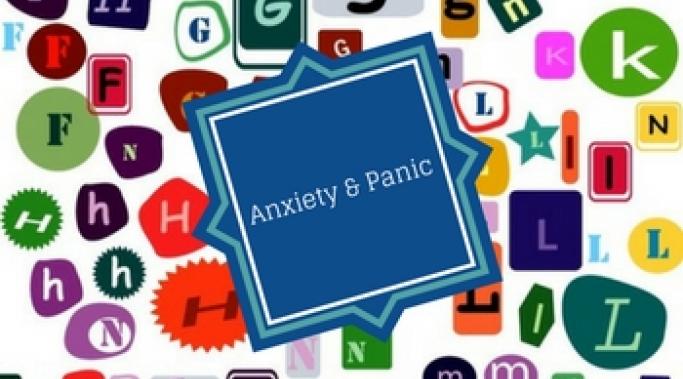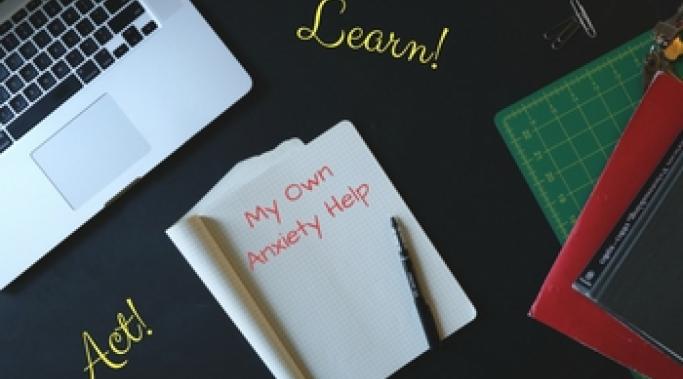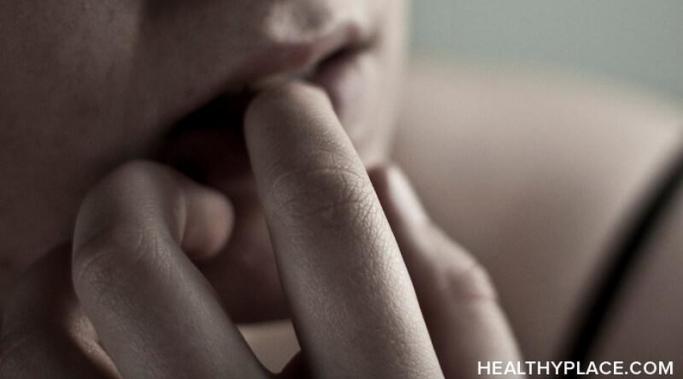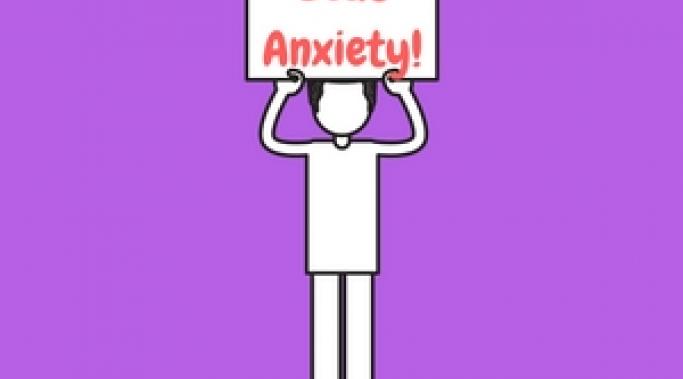Our world, it seems, is becoming increasingly toxic; handling anxiety in this fearful, stressful environment can sometimes seem impossible. Negativity swirls around us like dead leaves tossed about in a gust of wind. (And it can feel like the wind picks up not just dead leaves but gravel, pelting us with the gravel; and it can feel like the wind is so violently strong that we can’t move.) It’s not uncommon right now to feel alone in that wind storm because everyone else is trapped in their own anxious storms (Despite Paralyzing Anxiety, There Are Ways To Move). Are humans still driven by kindness, or are they driven by hate toward those who disagree with them? It can be difficult to handle anxiety in a fearful, stressful, toxic world.
Anxiety-Schmanxiety
When you're caught in the roiling storm of anxiety, often the best way to calm that anxiety is to step back and observe. The fear, worry, and apprehension that are part of anxiety can become strong and debilitating when we're up close and personal with an anxiety-provoking situation. Why do we need to step back and observe when our anxiety is intense, and how do we do it?
Anxiety and panic are complex mental health conditions that have a tremendous impact on our lives (Anxiety and Panic Attack Articles). Like most big things, anxiety and panic have their ABCs, their fundamental concepts that explain the essence of what they are. When young children first learn to read and write, they break down the task into the basic components of what they are about to tackle; they learn their ABCs. This approach is great for dealing with anxiety and panic, too. Armed with the ABCs of anxiety and panic, we can use what we know to tackle the problem.
Deciding to seek help for anxiety so you can take back your life but then being unable to find help for anxiety is incredibly frustrating (Types of Mental Health Doctors and How to Find One). For a variety of reasons, such as insurance problems, lack of qualified mental health professionals in an area, difficulty getting or keeping appointments, and more, mental health help isn’t always readily available. While ideally everyone would be able to receive medical and therapeutic help for anxiety, doing so isn’t necessary to treat and manage anxiety. There are things you can do when you can’t find help for anxiety.
It can be surprisingly difficult to know when you need anxiety help. Sometimes we are agitated, second-guessing ourselves, worrying about our mistakes or how we’re perceived or that something bad will happen. Yet despite this nagging anxiety, it’s common to wonder if you need anxiety help or if the anxiety is just something to deal with until it passes. Here, learn ways to tell if you need anxiety help.
Are you ready to live an anxiety-free life? You can actively take charge of this by writing your story of life without anxiety. Now is the perfect time to begin. At the time I’m writing this, we’re about to enter a brand new year. However, every single day is a new day with the promise of new beginnings, and you can write your story of a life without anxiety starting now, whenever “now” may be. Ready? Read on for more about how to use this new beginning to write your story and live an anxiety-free life.
Just as anxiety can happen at any time in life, it’s possible to conquer anxiety at any time by using the stages of development. The previous two articles explored the fact that all human beings progress through distinct developmental stages, each with its own tasks and risks of failure and anxiety (Anxiety Can Happen at Any Age: Child and Teen Anxiety; Anxiety in the Adult Years: Anxiety Can Happen at Any Age). By understanding what our main developmental tasks are, we can use those stages of development to conquer anxiety at any time in life.
Anxiety doesn’t discriminate and anxiety can happen in the adult years. It can strike all human beings, and anxiety can happen at any age. Humans progress through distinct developmental stages as they grow, and each stage is marked by specific tasks and characteristics. Sometimes, things go wrong at one or more stages of development. When a stage isn’t completed successfully, problems can occur (Anxiety Causes: What Causes Anxiety?). It is for this reason that anxiety can happen at any age -- including in the adult years.
Anxiety can happen at any age. Anxiety itself is part of the human condition, present in our lives merely because we exist. Sometimes, anxiety grows and expands and begins to take over our thoughts, feelings, and behaviors; when this happens, we may qualify for a diagnosis of one or more anxiety disorders. Both existential anxiety and anxiety disorders such as separation anxiety, generalized anxiety disorder, social anxiety disorder, and fears or phobias, can happen at any age. Let’s take a look at the anxiety that can happen at various ages.
Even in times of great struggle with anxiety disorders, there are signs that tell you that you’ll beat anxiety. By definition, any anxiety disorder is something whose symptoms cause significant distress, interfere in one or more areas of life (such as work, family, or social functioning), is difficult to control, and endures over time, usually for at least six months but often longer.1 Anxiety in any form, then, can be daunting. But take heart: when you’re feeling thoroughly stuck, look within yourself for these five signs that you will indeed beat anxiety.









